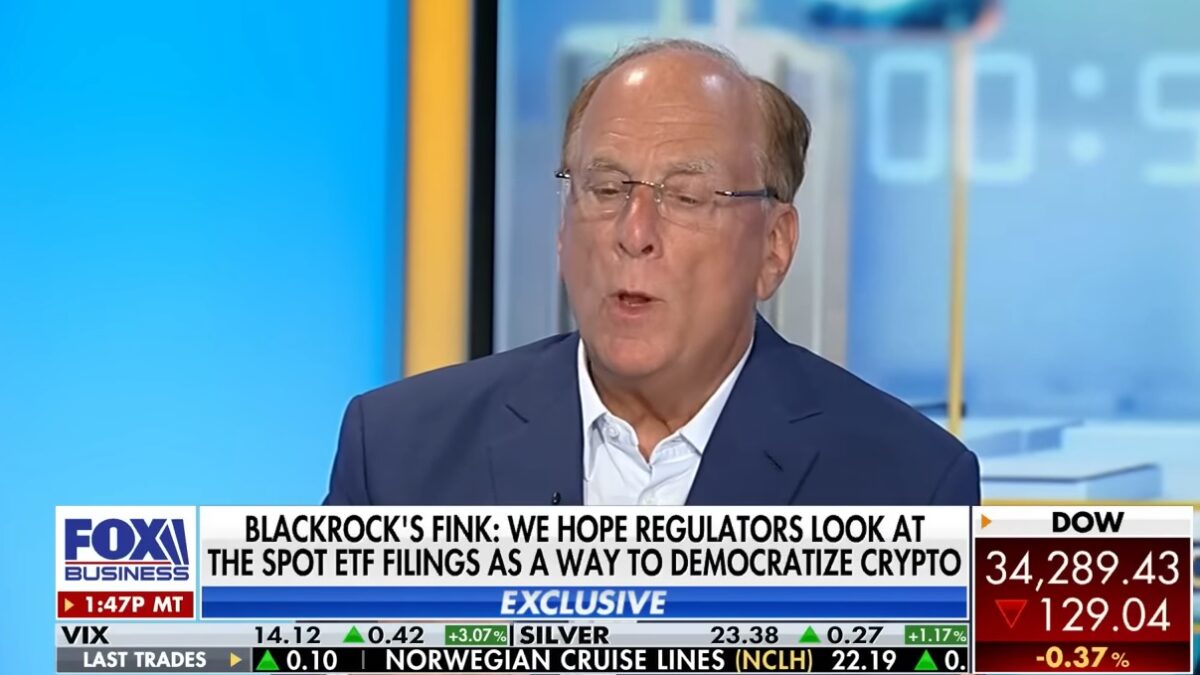
Excerpt adapted from “In Pursuit of Wealth: The Moral Case for Finance” (ARI Press, 2017).
When Bernie Sanders challenged Hillary Clinton for the Democratic presidential nomination, his core message was that America’s greatest challenge was rising economic inequality—and the main villain in this narrative was “Wall Street”: the bankers, traders, and other financiers who make up America’s financial industry. “The business model of Wall Street,” he said, “is fraud.” It was one of the least controversial statements he made.
Throughout history, finance has always been viewed with skepticism if not outright hostility, whether it was the ancient Greeks and early Christians who condemned (and often punished) “usurers,” Franklin D. Roosevelt who insisted that the Great Depression was the product of greedy speculators, or Occupy Wall Street, which vilified “the 1 percent.”
And, to be sure, we have seen real problems concentrated in the financial industry, whether it be massive crises like the Great Depression, the Savings and Loan debacle, and the Great Recession, or scandals like Bernie Madoff’s Ponzi scheme, the outcry over high frequency trading that occurred with the release of Michael Lewis’s 2014 book Flash Boys, or the recent Wells Fargo phony account controversy.
But the fact is that our economic well-being depends on a vibrant and innovative financial industry—and that we would all be far worse off but for the productive achievements of this maligned and vilified group of individuals. Even if one is outraged by the behavior of some bankers, to call every member of the industry a participant in fraud is a profound injustice.
Why then does no one speak up to defend finance? Why do statements like Sanders’ evoke a yawn rather than a protest? Because what Sanders said was only a crass variant of a belief shared by almost everyone in some form: that finance is immoral. Maybe not totally. Maybe it has some redeeming features. Maybe it is a necessary evil. But it is an evil nonetheless.
This belief in the immorality of finance can’t be explained merely by the specific wrongs committed by specific financiers. Soldiers have committed atrocities without tarring the reputation of the military itself. The special ire directed at finance comes from the recognition that financiers are motivated by the selfish desire for profit—and the belief that the profit motive leads financiers to take short-range, irrational, predatory actions to line their pockets at others’ expense.
In this regard, finance is not unique. This same view of the profit motive taints our evaluation of all businessmen. The reason finance gets singled out for special rebuke is, in large measure, because financiers are the most naked in their pursuit of profit. Although all businesses aim to profit through their productive actions, their primary concern is (or at least should be) making great products and providing great services. But finance’s product is profit. A financier’s job isn’t to make money by making cars or computers—it’s simply to make money. (How do financiers make money? In large part by making it easier for others to make products like cars and computers.)
This points to why Ayn Rand’s philosophy of Objectivism is indispensable for understanding and defending the morality of finance. If you assume that the profit motive necessarily encourages predatory exploitation, and that self-interest per se is immoral, then at best you will see finance as a necessary evil and tend to see any problem or injustice associated with finance as a reflection of its inherent immorality.
Rand’s philosophy, however, challenges those assumptions, first and foremost by questioning the conventional understanding of self-interest. Whereas we are taught to equate self-interest with short-range desires for things like wealth, power, and prestige, and morality as a guide for tempering our selfish desires for the sake of others; Rand encourages us to look more carefully at what our self-interest actually consists of. Human beings thrive, she argues, not through the short-range, predatory pursuit of our desires, but through living a life committed to the ideals of reason, productive achievement, and the trader principle—seeking to gain values from others through mutually beneficial trade.
This conception of self-interest, which she calls rational selfishness, leads to an understanding of the profit motive diametrically at odds with the conventional one. Profit is the economic insignia of production: one profits by creating value—and the motive of those seeking profits is to earn wealth by creating value. It is a selfish motive, yes—in the sense that the pursuit of one’s own happiness is inherently selfish. But it has nothing to do with the short-range, predatory motives that drive cons, crooks, or even the “get rich quick” types who stay within the bounds of the law but have no genuine interest in productive enrichment. The symbol of the profit motive is Steve Jobs—not Bernie Madoff.
In Rand’s view, the man who profits through productive achievement is doing something moral. He is supporting his own existence and pursuing his own happiness by using his mind to create values—the values that human beings need to live and enjoy life. And this is as true for bankers, traders, and investors as for any other producer. They use their minds to create wealth—not by taking existing materials and turning them into more valuable goods, but by taking existing wealth and putting it toward more valuable uses. In short, financiers don’t create the products that enrich our lives—they help create (and nurture) all of the businesses that create the products that enrich our lives.
In our new book In Pursuit of Wealth: The Moral Case for Finance, we dispel some of the most important myths that prevent people from reaching a proper evaluation of finance, and lay out the moral framework necessary to grasp the industry’s virtues. A key takeaway from this book is that to counter the vilification of financiers requires moral reframing. Those who recognize the irreplaceable value of finance must change the terms of the debate. The question should not be whether financiers are “greedy” or selfish or motivated by money. The question should be: do they profit through creating values that enhance human well-being—or are they parasites who line their pockets through short-range gambling and predatory exploitation? If we ask that question—and if we answer it honestly—then the moral case for finance is undeniable.









